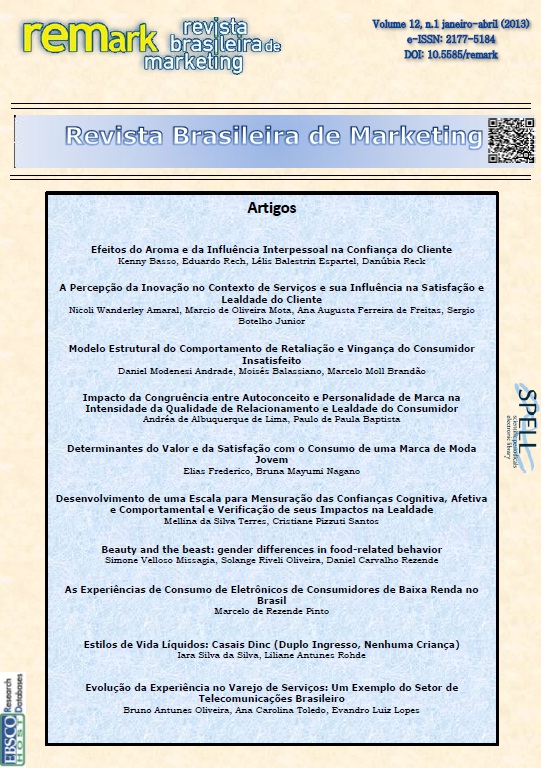Structural Model of Retaliation and Revenge Behavior of the Unsatisfied Consumer
DOI:
https://doi.org/10.5585/remark.v12i1.2505Keywords:
retaliatory behavior, vengeful behaviorAbstract
The main goal of this study is to develop and test a structural model equation (SME) of retaliatory and vengeful behavior in response to cognitive factors (perception of justice and betrayal) and emotional factors (anger and desire for revenge). Specific goals that guided the study were: a) to evaluate the relationship between the perception of justice and the perception of betrayal and feelings triggered by insult/grievance, including anger and desire for retaliation; and b) to combine cognition and emotion to understand the reactions associated with dissatisfaction. In order to address these purposes, a survey with 725 e-consumers was conducted. Analysis of the model was performed by SME and the general parameters of the model showed that data suited the suggested model. Therefore, this research contributed to the consumer behavior area by highlighting the possibility of combining cognitive and emotional factors as predictors of consumer’s responses; evidencing that the consumer’s desire for revenge may be associated with several responses; including retaliation and revenge; and in addition, adding electronic word of mouth as revengeful behavior to Brazilian consumers post-shopping experience. Thus, it was found that all cognitive factors and anger directly predict reactions, and that desire for revenge directly influences both retaliatory and vindictive behaviors. In upcoming studies, a theoretical model of research applied to Brazilian consumers might help us to understand the reasons that lead to extreme behaviors by outraged consumers.
DOI: 10.5585/remark.v12i1.2505








